N.B.: Mark relied on the information supplied in the modern Latin note which opens the manuscript. For the real content of the codex cf. “update 2” of my previous post.
This is a major find. The note in the Corpus Patrum Graecorum (vol 1, pg 149), which assigns the reference # 1426 to this work of Origen’s on the Psalms, only lists the smallest of fragments and catena excerpts previously extant. This may well be the earliest major Christian treatment of the Psalms now extant.
I took a look at the title and summary page to get a better sense of the contents. The title says “Homilies on the Psalter, by an uncertain author, up to Psalm 81 as the end.” According to the summary page at the front of the manuscript, there are two parts.
The first contains:
- two homilies on Psalm 16 (LXX 15)
- four on Psalm 32 (LXX 31)
- two on Psalm 68 (LXX 67)
- three on Psalm 74 (LXX 73)
- one on Psalm 75 (LXX 74)
- one on Psalm 76 (LXX 75)
- one on Psalm 77 (LXX 76)
- one on Psalm 78 (LXX 77)
The second contains:
- four on Psalm 78 (LXX 77)
- one on Psalm 81 (LXX 80)
- one on Psalm 82 (LXX 81)
The commentaries on Ambrose and Augustine on the Psalms have been translated into English and have gained hearings in various scholarly settings. Perhaps this major find will bring about a renewed interest in Origen’s other works on the Psalms (CPG 1425, 1427-1429, 1503.9), as well as the many, many other Greek commentaries still awaiting translation, analysis, and broader circulation. The list of neglected works for the fourth century alone includes those by Eusebius of Caesarea (CPG 3467), Athanasius (CPG 2140), Evagrius Ponticus (2455), Didymus of Alexandria (CPG 2550-2551), Basil of Caesarea (CPG 2836), Diodore of Tarsus (CPG 3818), Theodore of Mopsuestia (CPG 3833), and Asterius Ignotus (so renamed by Wolfram Kinzig; CPG 2815-2816).









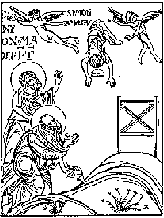




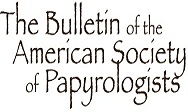
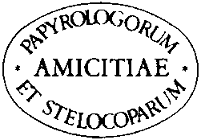
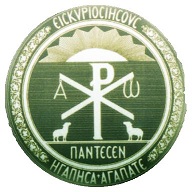





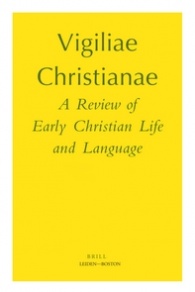






The traditional view – based on Rufinus’s Latin translation – is that Origen couldn’t have given homilies on every one of the psalms. This would seem to be challenged now, correct? Also does this change Nautin’s supposition that it took a three year liturgical cycle to complete the books of the Old Testament for the catechumens? It would seem to indicate to me at least as many as hundreds of extra homilies give that there are so many for each psalm. Possibly adding a year or two bringing the figure closer to Eusebius’s number of years for Gregory Thaumaturgus’s initiation (5 years) albeit not as long as what is written in the Panegyric for Origen (8 years).
I am not sure if the traditional view is challenged by the new discovery. As you can see in the list above, the manuscript contains homilies on certain Psalms.
Your remarks regarding the number of years in the liturgical cycle are quite interesting.
As I already posted at Roger Pearse’s site there is a reference in the Latin translation of the same Homily which is used to date the cycle:
Behold who ruled thirty years ago, how his rule flourished, but suddenly “like the flower of the grass” he withered away; then another after and another, who next became rulers and princes and “all their glory” and honor withered away, not only “as the flower,” but also as dry dust and was scattered by the wind. Not even a vestige remained of it.
This is perhaps our most important historical reference for Origen from the Church Father himself. It appears in his Homily on the 36th Psalm. He refers to a ruler whose rule flourished 30 years ago and then withered “like the flower of the grass”, to be followed “by another,” all of whom had their glory that also withered and was scattered like dust, so that no vestige remains of it (HomPs 36 1.2). Nautin has suggested that the man to whom Origen refers who ruled 30 years ago was Septimius Severus. Origen refers to four rulers in this paragraph, all of whom had their moments of glory, he says, and then faded. I think he is referring to the four Severan rulers: Septimius, Caracalla, Elagabalus, and Alexander, skipping over the usurper Macrinus who ruled only one year after he had murdered Caracalla. Septimius Severus died in February 211. The latest date for Origen’s sermon, then, if he was using Septimius’ death as his point of reference, would be 241.
Nautin gave a number of possibilities 138 – 141, 139 – 142, 140 – 143. I think an earlier date makes more sense. Also Eusebius says that Origen was over 60 when he first allowed for a stenographer to record these public speeches. Of course Eusebius’s chronology is off (the difficulty starts in the account of the early period in Origen’s life which many feel is completely made up). Eusebius reference to 60 years occurs after a reference to Philip the Arab (244 – 249 CE) . Yet the comments don’t make any sense there.
Most people assume that the Homily on the Psalms began liturgical cycle which makes the discovery all the more interesting.
It will be interesting to see how close these homilies are to Jerome’s Homilies on the Psalms delivered to his monastic community at Bethlehem; as well as to Evagrius, of course . . .
Pingback: Biblioblog Carnival “according to Mark” « Euangelion Kata Markon
Pingback: Origen on the Web (June 22, 2012) « In the Text
Pingback: Biblical Studies Carnival LXVI: “According to Mark” « The Jesus Memoirs
Pingback: Nieznane teksty Orygenesa – Typografia po polsku